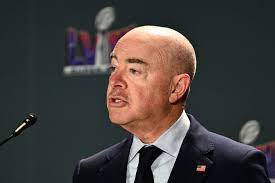
The Manufacturers Association of Nigeria (MAN) has expressed deep concern over a significant 12.9% rise in the value of unsold goods, with inventory reaching a record N1.4 trillion by the end of 2024.
This marks a stark increase from N1.24 trillion in the first half of the year, a development that MAN President Francis Meshioye attributed to a combination of factors, chief among them being reduced consumer purchasing power driven by soaring inflation.
Speaking at the 2025 Presidential Media Luncheon in Lagos on Wednesday, Meshioye outlined the serious macroeconomic and infrastructural challenges that plagued the manufacturing sector in 2024. “Inflation surged to an alarming 34.6% by November 2024, weakening consumer purchasing power and diminishing demand for manufactured goods,” he said. This economic strain, compounded by the rising costs of raw materials and machinery due to a devalued naira, created a perfect storm for the industry. The naira, which fell from N666/$ in mid-2023 to over N1,700/$ by mid-2024, exacerbated the cost of imports, further burdening manufacturers.
The sector also faced high-interest rates, which reached 27.7% in November 2024, making it nearly impossible for businesses to access affordable credit for expansion or modernization. Additionally, the 250% hike in electricity tariffs further inflated operational costs, forcing many manufacturers to seek out more expensive energy alternatives.
“The manufacturing sector faced a confluence of challenges in 2024, causing a notable decline in its contribution to Nigeria’s GDP, which dropped from 16.04% in Q4 2023 to 12.68% in Q2 2024,” Meshioye reported. He emphasized the critical role of manufacturing in driving economic growth and stressed the need for government intervention to avert further decline.
He called for immediate government action, urging the timely passage of four crucial tax bills currently before the National Assembly, a review of electricity tariffs, and the swift clearance of foreign exchange backlogs. Meshioye also underscored the need for policy consistency and improved infrastructure to enhance the sector’s competitiveness.
Despite the difficulties, Meshioye expressed cautious optimism about the future, particularly regarding the potential for technology, including artificial intelligence (AI), to revolutionize the manufacturing sector. “The efficient adoption of AI will enhance production capacity, improve productivity, and streamline logistics operations,” he said, outlining a vision for a more innovative and competitive manufacturing sector.
Looking ahead, Meshioye pointed to the projected 4% economic growth for 2025 and the anticipated stabilization of the naira between N1,500 and N1,650 to the dollar as positive signs. However, he called for continued reforms to stabilize the economy and support the recovery of the manufacturing industry.
“The path to growth is clear,” he concluded. “Improving productivity and enhancing competitiveness should be our focus as we work to ensure that Nigerian manufacturers can overcome these challenges and thrive.”
Earlier, MAN had reported that the sharp rise in unsold inventories was linked to declining purchasing power, aggravated by factors such as escalating inflation, subsidy removal, and the devaluation of the naira, reflecting the tough economic conditions manufacturers have had to navigate.





